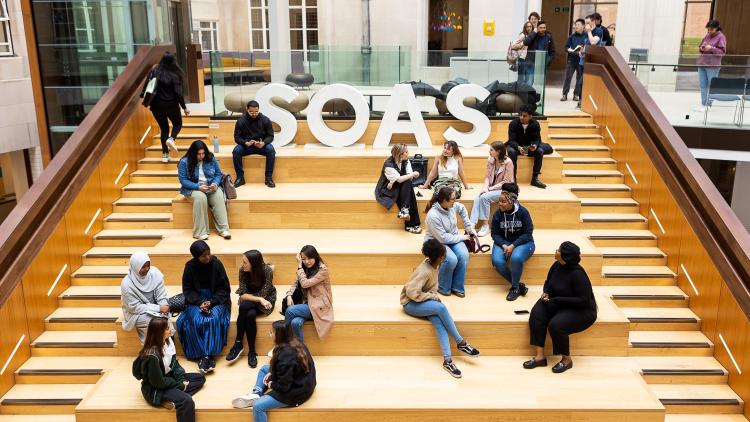Dr Surbhi Kesar

Key information

- Roles
- Department of Economics Senior Lecturer in Economics Doctoral School Co-Convenor Co-organiser, Economics Seminar series
- Department
- Department of Economics
- Qualifications
- PhD Economics (South Asian University)
- Building
- Russell Square: College Buildings
- Office
- 284
- Email address
- sk156@soas.ac.uk
Biography
Surbhi Kesar is Senior Lecturer in Economics at SOAS University of London.
Her recent and ongoing work focusses on labour and informal economy and the reproduction of the structure of economic dualism in India with high economic growth, thereby critiquing the imaginary of development-as-capitalist-transition; relation between identities and social exclusion in India; political economy of crises and the impact of COVID-19 pandemic; a critical engagement with the social reproduction theory; and approaches towards decolonising the field of economics.
Her research is embedded in Marxian Political Economy and South-centric critical frameworks of economics. She is working on several projects in these areas. Her work has been published in several journals including World Development, Review of Development Economics, Development and Change, Review of Radical Political Economics, Review of International Political Economy, Review of Political Economy, European Journal of Development Research, Canadian Journal of Development Studies.
She is also co-editing a special issue on ‘Decolonising Economic Development’ for World Development and has co-authored a book project on ‘Decolonising Economics: An Introduction’. She received her PhD in Economics from South Asian University, New Delhi, and has been a Fulbright Fellow at University of Massachusetts, Amherst.
Prior to joining SOAS, she was an Assistant Professor of Economics at Azim Premji University, Bengaluru. She is an Associate Editor for Oxford Development Studies journal and an editorial board member of the Review of Radical Political Economics journal. She is a Steering Group member for the Diversifying and Decolonising Economics initiative.
Research interests
- Informal Economy
- Structural transformation and capitalist transition in labour surplus economies
- Economic growth and social exclusion
- Decolonizing economics
PhD Supervision
| Name | Title |
|---|---|
| Syarifah Namira Fitrania | Informality and Inequality: Perspective of Heterogeneous Dualistic Labour Market on Disparities in Indonesia (preliminary title) |
| Siviwe Mhlana | Engendering Livelihoods: Valuing the Social and Ecological Contributions of Women Informal Workers. |
| Emile Pierre Basenda Motanda | The Informal Economy and informal firms’ productive efficiency in the DR Congo. |
| Alnick Nathan | Labour, development, and precarious work in Indonesia’s informal economy (preliminary title). |
| Eleonora Paesani | Platforming the bai: dynamics of unfree labour in app-based domestic and care work in India. |
| Alifia Marina Syarfi | Gendered Labour Market Transitions in Indonesia Across the Formal and Informal Sectors Since the 1998 Economic Crisis (preliminary title). |


